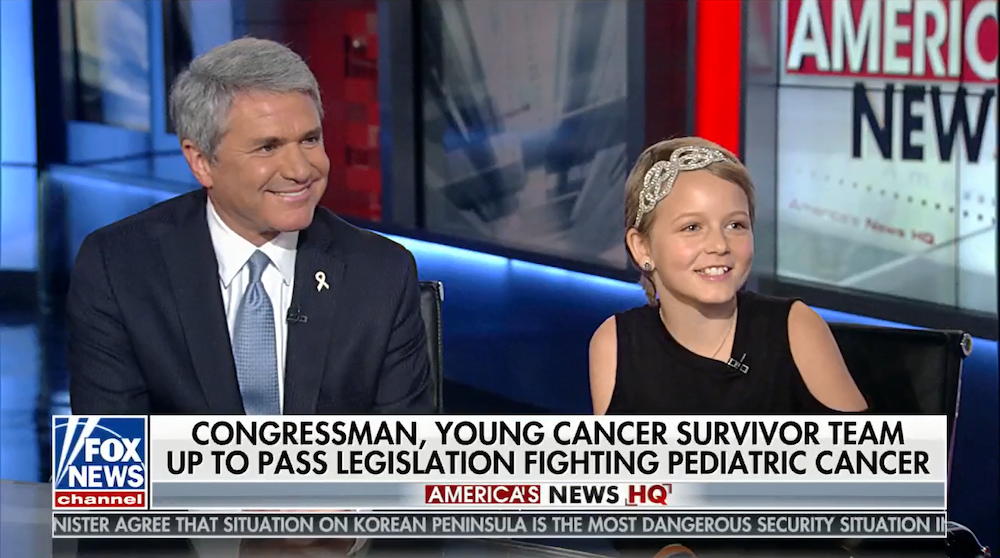Rep. McCaul’s Global Hope Act brings lifesaving cancer treatments to children in developing nations
Houston Chronicle
January 3, 2020
In Africa and developing nations, childhood cancer mortality rates are between 80 and 90 percent. Inversely, in the United States, childhood cancers have an 80 to 90 percent survivorship rate, according to Congressman Michael McCaul.
The reason is intuitively simple; children in the U.S. have better access to treatment and medications. However, most prevalent forms of pediatric cancer are curable with generic medications. Bringing low cost medications and providing training to developing nations would give children in these areas the same fighting chance of children in the United States.
McCaul believes that the nation can- and should- bring the low cost cancer treatments available in the United States to these developing nations to save the lives of millions of children globally. “These children shouldn’t be discriminated against because of where they were born,” he said.
“We’re fortunate in the United States,” said McCaul. “Childhood cancer rates are about 80 percent survivorship. However, in developing nations, there’s an 80 to 90 percent mortality rate. So that means nine out of every ten children that are diagnosed with cancer in Africa die.”
McCaul, the U.S. Representative from District 10, which includes Katy, has been working closely with the President’s Emergency Plan for AIDS Relief and Texas Children’s Hospital to bring the lifesaving cancer treatments available in the U.S. to children across the globe. McCaul is a steadfast supporter of global health activism. Earlier this year, McCaul championed the Global Health Fund, which raises money to eradicate infectious diseases worldwide.
McCaul and Rep. Eliot Engel (D-NY) introduced the Global Hope Act to Congress in the hopes that this act would bring improvements to global medicine like their previous joint bill, which promoted the Global Health Fund. Partnerships with pharmaceutical companies, research institutions, philanthropies and non-governmental organizations will help fund the Global Hope Act’s initiatives.
McCaul hopes that the Global Hope Act will have a similar impact to that of the World Health Organization (WHO), which launched its global childhood cancer initiative in 2018. It is the goal of the WHO goal to reach a 60 percent survival rate for children with cancer by 2030. According to McCaul, this translates into the lives of approximately million children saved.
McCaul believes that the program will be self-sustaining once treatments and medications are available. “At the end of the day, we want to train these countries so they can stand up on their own. We want to demonstrate how they can take care of their children that are dying at an extraordinary percentage rate,” he said.


